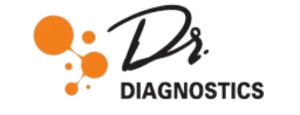- ECG SCANS
Top Rated ECG Scan Available
An ECG (electrocardiogram) is a test that records the electrical activity of your heart, including the rate and rhythm. It’s usually quick and painless.
The ECG electrodes must be placed on clean, dry, skin. Sometimes, you will need to have the area shaved to ensure good skin contact.

Benefits of choosing Dr Diagnostics
Smart Reports In 30 Mins
Free Reports Consultation
Most Affordable Pricing
On-time Sample Collection
Why an ECG (electrocardiogram) is done?
You’ll usually have an ECG (electrocardiogram) if a doctor thinks you’re having symptoms of:
- a heart attack
- coronary heart disease
- problems with how quickly or regularly your heart beats (arrhythmia)
You also may have an ECG:
- if you’ve been diagnosed with a heart condition or another condition that affects how well your heart works
- before and while taking certain medicines
How to read an ECG?
Your own internal pacemaker, your sinoatrial node, starts your heartbeat with an electrical signal. An ECG reads that signal and tracks its impact on your heart as it contracts and relaxes with each heartbeat.
Your healthcare provider will look at how much electrical activity there is, how strong it is and how much time passes between the different waves or peaks that represent the electrical impulses.
- Your upper heart chambers (atria), where your heartbeats start, create the first wave, or “P wave.”
- Your lower heart chambers (ventricles) create the next wave, called a QRS complex.
- The third wave, or “T wave,” shows your heart at rest or recovering after beating.
An ECG is a very quick and pain-free test your healthcare provider can do to check your heart rhythm and evaluate your heart. The information from your ECG will help your provider decide what treatment would be best for you. Be sure to keep your follow-up appointments with your provider and
What are the different types of ECG?
Different types of ECG include:
- Resting ECG: you lie still for a few minutes and breathe normally while the ECG is recorded.
- Ambulatory ECG (also called a 24-hour ECG, or Holter monitor): you wear the leads and carry a monitor while you go about your usual activities for 24 hours.
- A cardiac stress test: the ECG is recorded while you exercise on a treadmill. It checks for areas of heart muscle that struggle when stressed. If you cannot exercise, medicines might be used to test the effect of stress on your heart.
If you have chest pain or another problem during the ECG, it’s important to tell the technician doing the test.
If you’re having an ambulatory ECG, the tec
When would an ECG be used?
Your healthcare provider uses an ECG to:
- Assess your heart rhythm to see if it’s normal or if you have arrhythmia.
- Diagnose poor blood flow to your heart muscle (ischemia) because of coronary artery disease.
- Diagnose a heart attack.
- Diagnose abnormalities of your heart, such as heart chamber enlargement and abnormal
electrical conduction.
- Diagnose abnormalities of your heart, such as heart chamber enlargement and abnormal
- Diagnose heart damage or heart failure.
- Make sure you’re fit for an upcoming surgery.
They can also check on how your heart is doing since you:
- Got a pacemaker.
- Started taking medication for heart disease.
- Had a heart attack.
- GENERAL QUESTIONS
Frequently asked questions.
Ans: An ECG Can Recognize the Signs of Blocked Arteries.
Ans: An ECG may be helpful if your pulse is difficult to feel or too fast or too irregular to count accurately.
Ans: It is best to avoid drinking cold water or exercising immediately before the test. They may significantly increase your heart rate.
Ans: There is nothing painful about getting an ECG. The patient is asked to lie down, and small metal tabs (called electrodes) are fixed to the skin with sticky papers.

